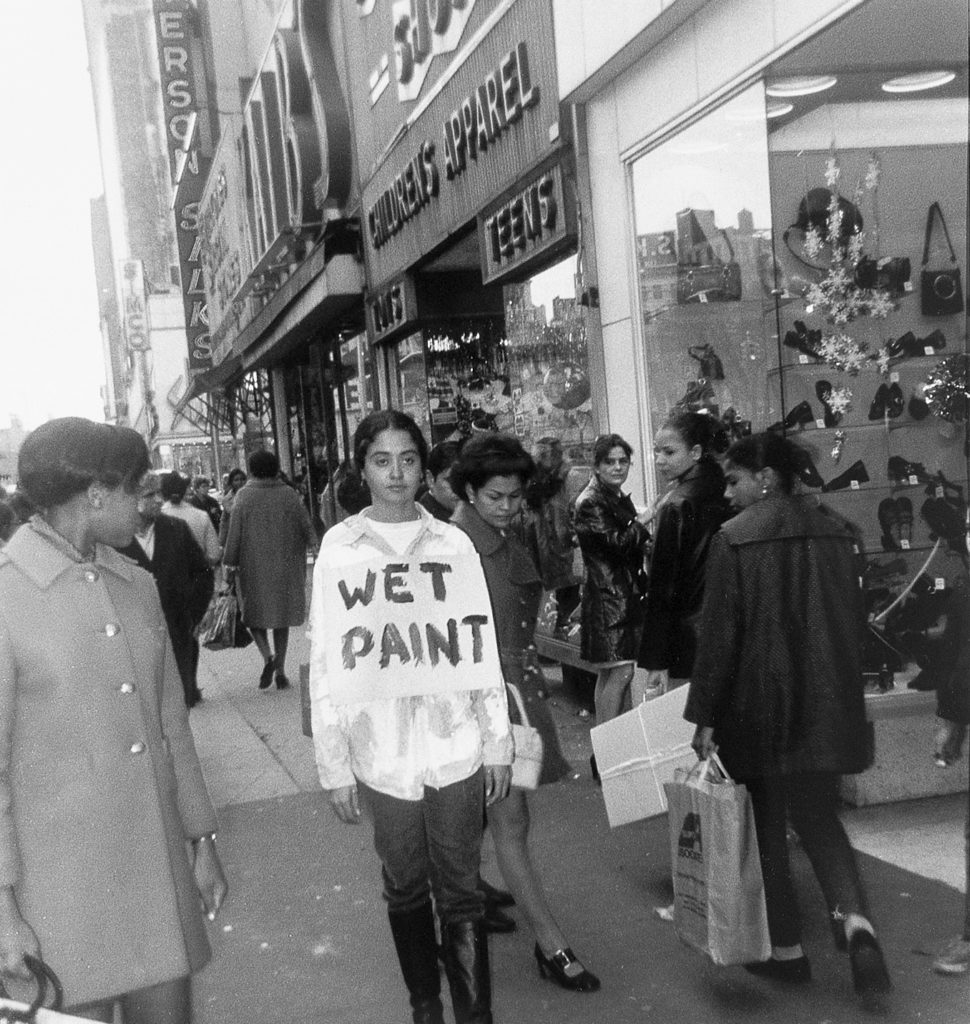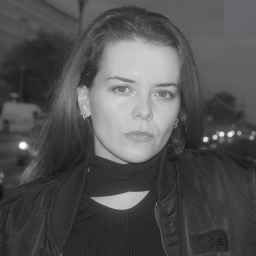Sometime around 1965, the young American artist Lee Lozano was chatting with the upstart curator Kasper König.
“You are a good painter and a nice girl,” König said to Lozano, as she recounted later in her notebook.
“Wrong on both counts,” Lozano replied. “I am a very good painter and not a nice girl!”
The provocative interaction between the two, both of whom went on to become art-world stars, inspired the title for a group show in Düsseldorf that opens on January 18. The exhibition delves into the history of pioneering female conceptual artists: Lozano, Adrian Piper, Eleanor Antin, and Mierle Laderman Ukeles. Viewed together, the archival material, including letters and notes, illustrates a determined network of women, but also sheds light on the institutionalized discrimination they encountered and pushed back against during their careers.
“It is an instance of structural sexism framed as kindness,” says the exhibition’s curator, Isabelle Malz, of the documented conversation between König and Lozano, whose notebook is included in a display of 11 books she filled during her lifetime but never exhibited. “Each of these women raised very contemporary topics and important questions that are still relevant and pressing today,” Malz adds.
The vast majority of the ephemera on view charts correspondence that the four first-generation conceptual artists had with the influential German art dealer Konrad Fischer. Together with his wife, Dorothee Fischer, Konrad played a significant role in the conceptual art movement and was an early champion of artists like Carl Andre, Bruce Nauman, and On Kawara. (Material from the Fischer Archive forms the backbone of the exhibition.)
Ironically, though he maintained frequent contact with the female artists in that cohort, Fischer did not exhibit their work at his gallery with any regularity.
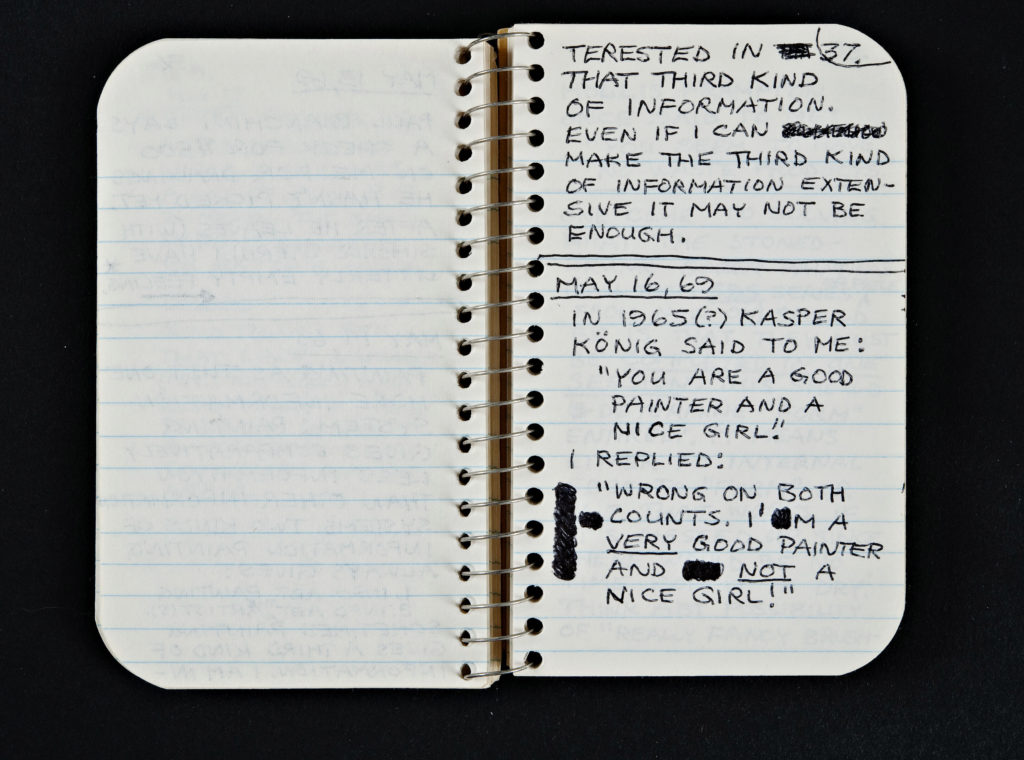
Lee Lozano (1930–1999), Private Notes.
One can detect the hopeful tone in Antin’s 1972 letter to Konrad Fischer, which she sent when she caught wind that the esteemed dealer was coming to the US for a visit. “I hope we can meet ‘in the real world’ when you’re in town,” she wrote. “I understand [fellow conceptual artist] John Baldessari is to drive you around. He knows where I am.”
Another letter, sent to German curator and art historian Klaus Honnef (with legendary curator Harald Szeemann listed as in “cc” at the bottom), from Hungarian-American conceptual artist Agnes Denes, is a little less friendly. “I was recently told by a ‘spy’ that Konrad Fischer ‘doesn’t like’ my work—which is fine with me, except that he has never seen my work,” writes Denes, complaining about being rejected from a documenta show. “A man never recommends a woman unless she is his woman.”
The work of Adrian Piper introduces yet another critical perspective, exploring the double marginalization female artists of color experience. The show includes My Calling Card #1, which the artist would hand out as an “intervention in order to prevent co-optation” when someone would make a racist remark. (The small card reads: “I regret any discomfort my presence is causing you, just as I am sure you regret the discomfort your racism is causing me.”)
While a show drawing largely on archival material might initially be dismissed as dry, this one offers compelling insight into the art-world machine—and helps explain why the representation of women in museum collections remains astonishingly low.
“A critical reading of the archival material reveals structural mechanisms of discrimination within our society, along with questions about hidden narratives in art history,” Malz wrote in an introduction to the show. Her aim, she says, is to “liberate the documents in the Fischer Archive from their storage boxes” and activate them with new questions and perspectives.
See some of the show’s archival documents and artworks below.
“I’m Not a Nice Girl!” is on view at K21 – Kunstsammlung NRW in Düsseldorf from January 18 through May 17, 2020.
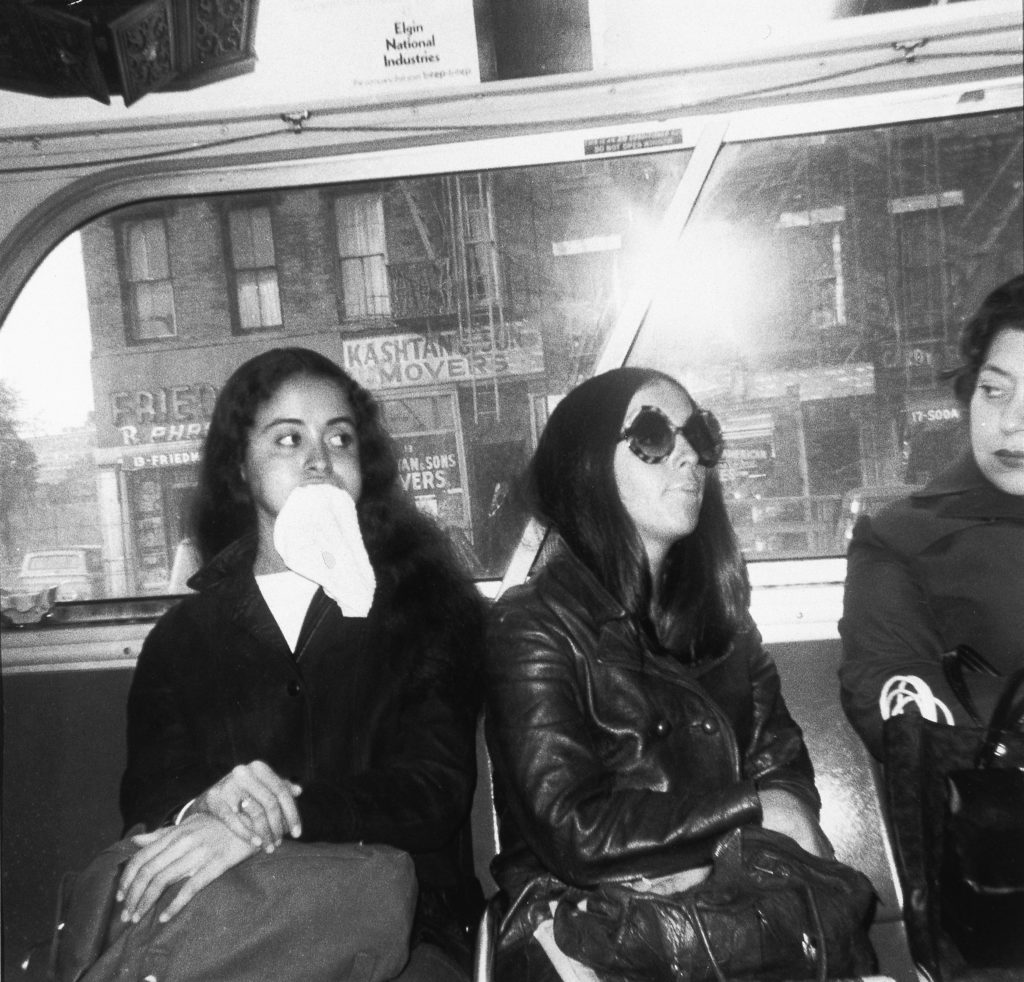
Adrian Piper, Catalysis IV (1970). Photo: Rosemary Mayer. Collection of the Generali Foundation, Vienna, Per-manent Loan to the Museum der Moderne Salzburg. © Adrian Piper Research Archive Foundation Berlin and Generali Foundation.
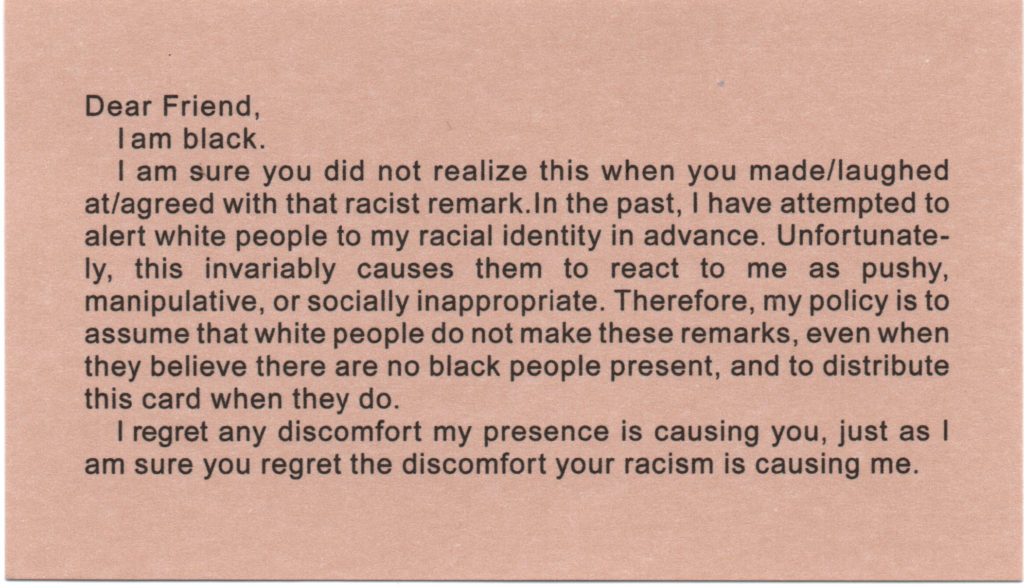
Adrian Piper, My Calling (Card) #1 (Reactive Guerrilla Performance for Dinners and Cocktail Parties) (1986-present ). © Adrian Piper Research Archive Foundation Berlin.
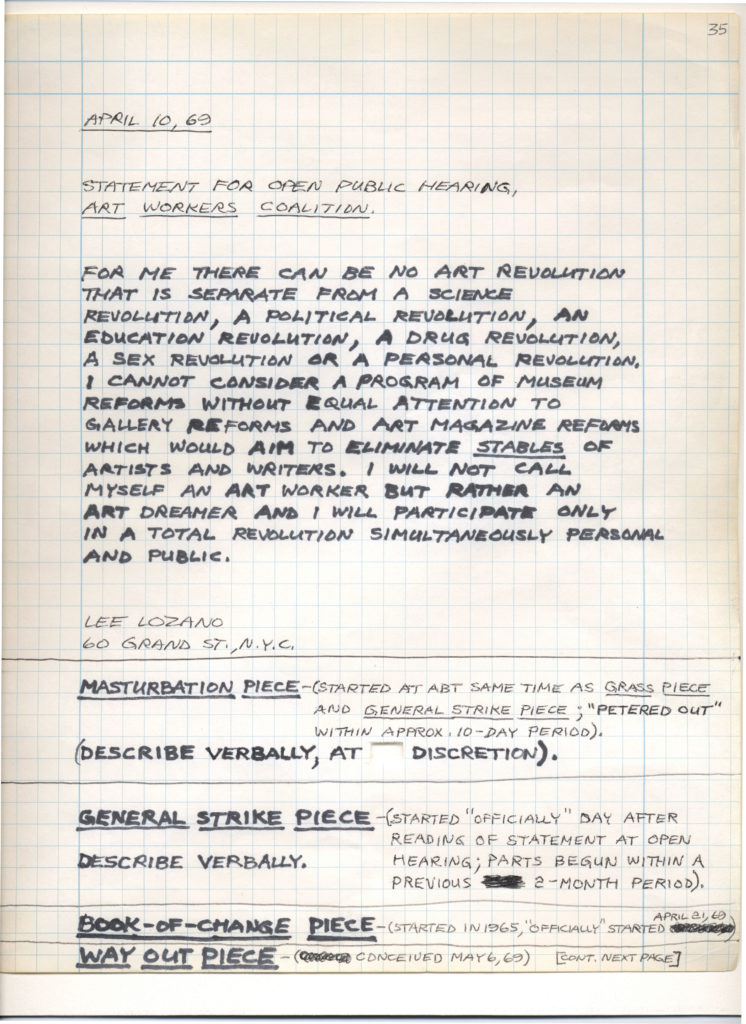
Lee Lozano, No title, (1969). Courtesy Hauser & Wirth.
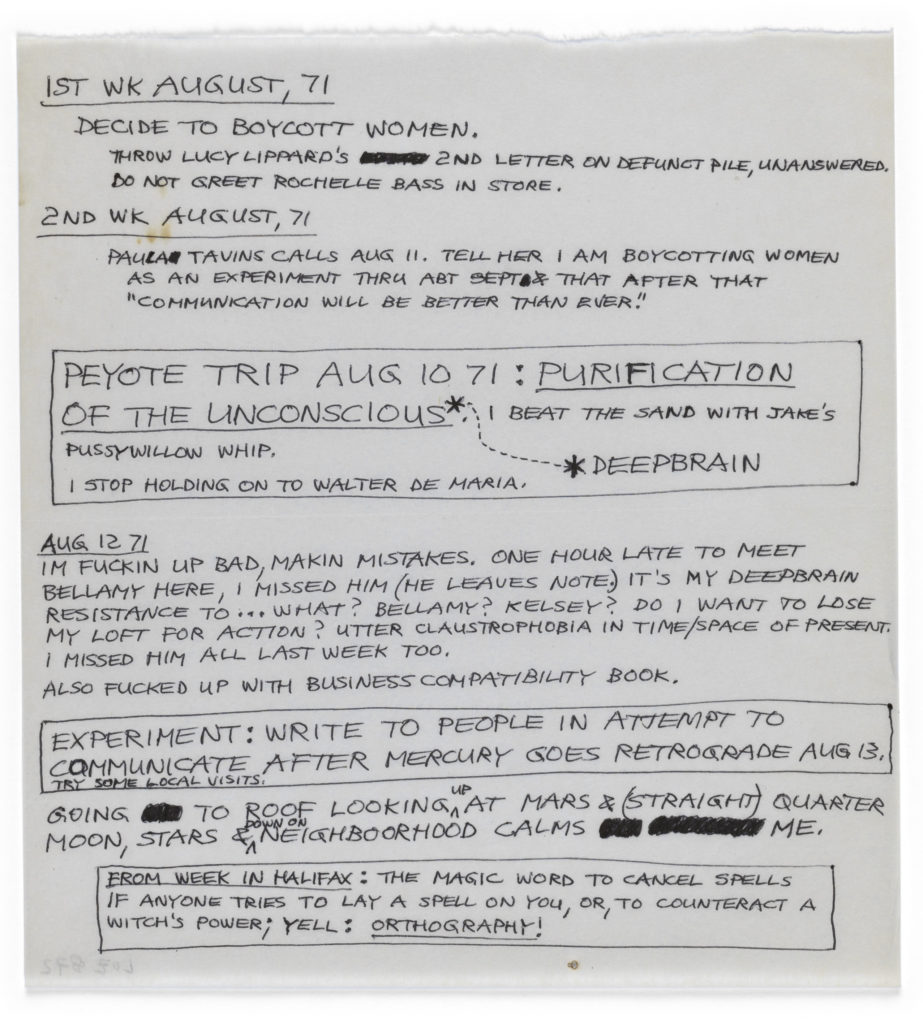
Lee Lozano, No title (1971). Courtesy Hauser & Wirth.
